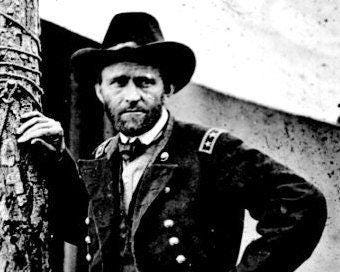“Man proposes and God disposes” – A Book Review of the Biography of US Grant
Grant’s life is one of those quintessential American experiences, the kind of experience that many immigrants can relate to.
If you like this piece, feel free to click the ❤️ or 🔄 button so more people can read it. Thank you.
I recently visited the famed Civil War battlefield at Gettysburg, PA. My husband, well-versed in Civil War history, assigned me a reading list to prepare me for the tip. One of the books on the list was the biography of Grant by Ron Chernow.
Before I read this book, I didn’t know much about Grant other than some broad brushstrokes of historical facts: he was the general who led the North to win the Civil War and later became the President of the United States for two terms. His biography afforded me a newfound appreciation for him and America. I highly recommend this book for three reasons.
A quintessential American story
Grant was born into an ordinary family in Ohio that lacked either connection or wealth. Grant’s father, a small business owner, later earned a comfortable living but did little to assist Grant financially. Before turning 40, Grant’s life was ordinary and even sad. If not for his ambitious father Jesse Grant’s push-and-pull, Grant would never have attended West Point. He was a mediocre student. After spending some years with the military, including participating in the U.S.-Mexico War, he got an early discharge from the military, partially due to his persistent drinking problem and partially due to his desire to escape a higher-up who was bent on making his military life miserable. The discharge tainted his reputation, and for the rest of his life, his detractors ceaselessly referred to him as a "drunkard."
After leaving the military, Grant tried many things but had no luck succeeding in anything. Career disappointments and constituent financial struggles marked his post-discharge life. He tried to become a farmer, but the flood ruined his crops. To support his family of five, Grant stood on the corner of a street in downtown St. Luis to sell firewood. Grant reached the lowest point of his life at age 39. He became a leather store clerk for his younger, less educated brother.
The Civil War brought both America and Grant fundamental changes. All the adversities he had to deal with in the first half of his life turned out to be a blessing in disguise. Besides his military talent, his tough mentality, the ability to remain cool-headed amid the most demanding situations, to see hope and stay optimistic even in the darkest hours despite mounting criticism, and to maintain his humility regardless of the soaring heights his fame had achieved, were all essential to his successes on the battlefield. From the lowest of the lows in his early life, he rose to become the General of the Army and later President of the United States.
Grant’s life is one of those quintessential American experiences: that in this great nation, regardless of how an individual’s life began, he or she has the liberty to shape their own destiny through rugged individualism, determination, and merit. It’s the kind of experience that many immigrants can relate to.
As American poet Walt Whitman said about Grant, that “what an illustration-his life-of the capacities of that American individuality common to us all… he proves how an average western farmer, mechanic, boatman, carried by tides of circumstances, perhaps caprices, into a position of incredible military or civil responsibilities… and then, retiring quietly… Seems to me it transcends Plutarch.”
Keep reading with a 7-day free trial
Subscribe to Confucius Never Said to keep reading this post and get 7 days of free access to the full post archives.




